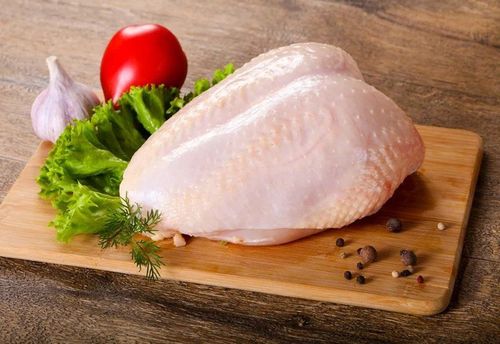Is eating chicken skin good or bad? This is a topic of much debate. Many people believe that the fat in chicken skin can cause various dangerous diseases. However, chicken skin has certain roles for the body. The following article will help answer the question of whether eating chicken skin is good and how to eat it healthily.
1. Is eating chicken skin good?
Previously, cardiologists and nutrition experts believed that eating chicken skin could be harmful to health. When preparing chicken dishes, you were often advised to completely remove the skin. However, recent studies have confirmed that chicken skin is not entirely bad. In fact, 30g of chicken skin contains 8g of unsaturated fat and 3g of saturated fat. Eating chicken skin can be beneficial if consumed correctly or harmful if eaten incorrectly.
Most of the fat in chicken skin is unsaturated fat, which is very beneficial for cardiovascular health. According to the Harvard School of Public Health, unsaturated fats can help prevent and reduce blood cholesterol and stabilize blood pressure. Therefore, when preparing chicken, you can leave a piece of skin on. Additionally, keeping the skin on when cooking will enhance the flavor and juiciness of the dish.
The calorie content in chicken skin is a concern for many because it can lead to weight gain or increased fat. However, in reality, the calorie difference between chicken skin and chicken meat is not significant. Chicken skin has slightly more calories. Nevertheless, chicken skin can be harmful to human health due to its saturated fat content. People with high blood pressure should limit their intake of animal skin, including chicken skin.
The symptoms of high blood pressure often do not manifest externally, making it difficult to detect the condition. If not treated promptly, it can lead to serious complications such as heart attacks and strokes. Certain foods in the diet of people with high blood pressure can increase the risk of the condition, including chicken skin and other animal skins. Therefore, experts recommend avoiding foods with skin.
Additionally, chicken skin contains more omega-6 than other meats, which can increase the risk of inflammation in the body.

2. Does chicken skin cause coughing?
It is commonly advised that when you have a cough, you should avoid eating chicken in general and chicken skin in particular. However, there is currently no research showing that chicken skin worsens a cough. Chicken and chicken skin are rich in nutrients and provide energy for the body.
When someone has a cough or fever, they often experience loss of appetite and fatigue. Excessive dietary restrictions can lead to malnutrition, physical weakness, and reduced resistance to disease. Therefore, avoiding chicken (skin) is unnecessary and not recommended.

If consumed properly, chicken skin can offer some health benefits, but it should be eaten in moderation. You can eat chicken with skin once a week. When preparing, chicken with skin absorbs less oil than skinless chicken. Moreover, chicken with skin makes the dish tastier and reduces cravings.
If you eat chicken with skin, it is best not to fry it excessively as it can reduce nutritional value and also harm health.
Please dial HOTLINE for more information or register for an appointment HERE. Download MyVinmec app to make appointments faster and to manage your bookings easily.
Sources: express.co.uk, insider.com













